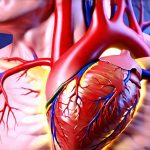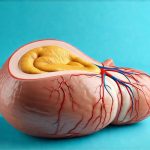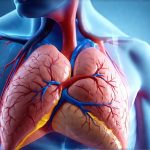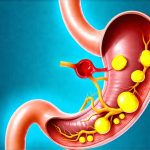Heartburn is one of those universally experienced sensations that many people dismiss as just part of life. A burning discomfort in the chest after a meal – often linked to spicy foods or large portions – it’s easy to assume it’s simply an occasional annoyance. However, frequent heartburn can be a symptom of something more serious: Gastroesophageal Reflux Disease (GERD). Understanding the distinction between these two is crucial for recognizing when to seek medical attention and how to manage symptoms effectively. This article will explore the differences between GERD and heartburn, offering insights into their causes, symptoms, and potential management strategies.
It’s important to remember that heartburn itself isn’t a disease; it’s a symptom. While occasional heartburn is common and generally doesn’t require medical intervention, persistent or severe heartburn can significantly impact your quality of life and may indicate the presence of GERD. Distinguishing between these two conditions helps individuals make informed decisions about their health and seek appropriate care when needed.
Understanding Heartburn
Heartburn occurs when stomach acid flows back up into the esophagus – the tube connecting your mouth to your stomach. This backward flow, called acid reflux, irritates the lining of the esophagus, causing that familiar burning sensation in the chest. It’s often triggered by specific foods, eating large meals, lying down soon after eating, or even stress. Many people find relief from occasional heartburn with over-the-counter antacids or lifestyle changes.
Heartburn is a symptom; it’s not an illness itself. While uncomfortable, episodic heartburn usually resolves quickly and doesn’t cause lasting damage. The frequency and severity are key factors in determining whether it’s simply heartburn or something more significant like GERD.
What is GERD?
Gastroesophageal Reflux Disease (GERD) is a chronic digestive disease that occurs when acid reflux happens frequently enough to cause ongoing symptoms or complications. Unlike occasional heartburn, GERD isn’t just about discomfort after a meal; it’s a persistent condition with potential long-term health effects if left unmanaged.
Causes and Risk Factors of GERD
Several factors can contribute to the development of GERD. A weakened lower esophageal sphincter (LES) – the muscle that prevents stomach acid from flowing back up – is often a primary cause. Hiatal hernia, where part of the stomach pushes up through the diaphragm, can also increase the risk. Lifestyle factors such as obesity, smoking, and certain medications can exacerbate symptoms or contribute to GERD development. Dietary choices like fatty foods, caffeine, and alcohol may also play a role for some individuals.
Recognizing GERD Symptoms Beyond Heartburn
While heartburn is a common symptom of GERD, the condition often presents with a wider range of manifestations. These can include regurgitation (the sensation of stomach contents coming back up), difficulty swallowing (dysphagia), chronic cough, hoarseness, sore throat, and even asthma-like symptoms. Some individuals may experience chest pain that mimics heart attack pain, making accurate diagnosis crucial. The presence of these additional symptoms, coupled with frequent heartburn, suggests GERD rather than isolated instances of acid reflux.
Potential Complications of Untreated GERD
Prolonged, untreated GERD can lead to several complications. Chronic inflammation from acid exposure can damage the esophageal lining, potentially leading to Barrett’s esophagus – a condition that increases the risk of esophageal cancer. Strictures (narrowing of the esophagus) can make swallowing difficult, and persistent reflux can cause respiratory problems like chronic cough or asthma exacerbations. Seeking medical attention for GERD is essential not only for symptom management but also for preventing these long-term health consequences.
It’s important to note that self-diagnosis can be misleading. If you experience frequent heartburn or suspect you may have GERD, consulting a healthcare professional is the best course of action. A doctor can accurately diagnose your condition and recommend an appropriate treatment plan tailored to your individual needs. This might involve lifestyle modifications, medications, or in some cases, surgical intervention. Remember that managing these conditions effectively requires understanding their differences and seeking timely medical guidance.


















